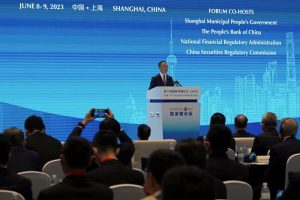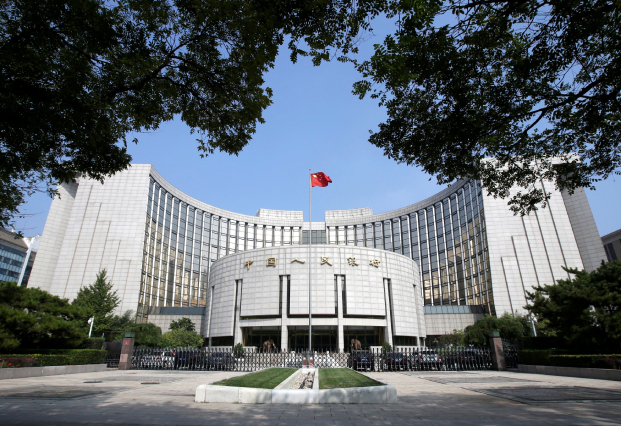China is likely to move to stabilize growth in the coming year, a former central banker has forecast.
Sheng Songcheng, a former statistics and analysis director at the People’s Bank of China, predicted on Sunday that policymakers would implement a proactive fiscal policy in 2024.
His remarks in a state media outlet comes as the economy struggles for momentum after being hobbled by lengthy pandemic-busting measures, while market watchers fear severe debt woe among major property developers could spill over to other sectors.
ALSO SEE: Wealthy Families, Private Firms Moving Billions Out of China – NYT
Yuan tipped to see mild rise
“It is expected that next year China will continue to implement positive fiscal policy, monetary policies that are in line with positive fiscal policy, with a relatively large policy space to lower the reserve requirement ratio,” Sheng said in comments reported by Shanghai Securities News.
With interest rates and loan prime rates at low levels, there is more space to cut banks’ reserve requirement ratio (RRR) than to cut interest rates, Sheng said.
The central bank lowered the RRR in September for the second time this year to boost liquidity and support economic recovery. Analysts expect another cut by year-end.
The weighted average RRR for financial institutions was around 7.4% after the cut.
China is prudent in cutting interest rates as its monetary policy needs to consider internal and external balance, Sheng said.
“It is expected that the interest rate differential between China and the US will enter a period of stabilisation, so the renminbi (yuan) is likely to maintain a mild appreciation trend, but the appreciation is limited.
Regulator to speed up reform of smaller banks
Meanwhile, top officials have also been vowing to rein in debt risks. And on Sunday, a key Chinese financial regulator said it would accelerate reform of small and midsize financial institutions as it steps up its oversight of the sector.

The National Financial Regulatory Administration (NFRA) will collaborate with the General Administration of Financial Supervision to tighten supervision of the financial industry other than the securities market, director Li Yunze said in an interview with state media Xinhua.
NFRA, the watchdog overseeing all aspects of China’s $57-trillion financial sector, along with other departments will focus on dealing with “key people” and “key behaviours” that are causing major financial risks and undermining market order, including illegal third-party intermediaries, he said.
Li said the NFRA will also take advantage of current favourable opportunities to increase the promotion of risk disposal.
It will promote small and midsize banking institutions to optimise their structure, improve quality and increase efficiency, Li said.
He added that they will encourage insurance companies to return to their original function of protection, and guide asset management, non-banking and other institutions to adhere to their positioning.
“At present, the operation of China’s financial sector is generally stable and the overall risk resistance is strong,” he said.
“We are fully confident and have the conditions and ability to increase vitality through reform, solve problems through development and properly respond to the challenges of various types of financial risks by increasing the volume of inventory.”
- Reuters with additional editing by Jim Pollard
ALSO SEE:
Two Executives From China’s Zhongzhi Missing After Collapse
Rare Earths Seen As a Factor in China-Vietnam Rail Link Talks
China Plans New Checks For Auditors, Accounting Firms
China’s Top Bank Paid Ransom After Cyber Attack, Gang Says
China’s Private Real Estate Giants Teeter Near Collapse























